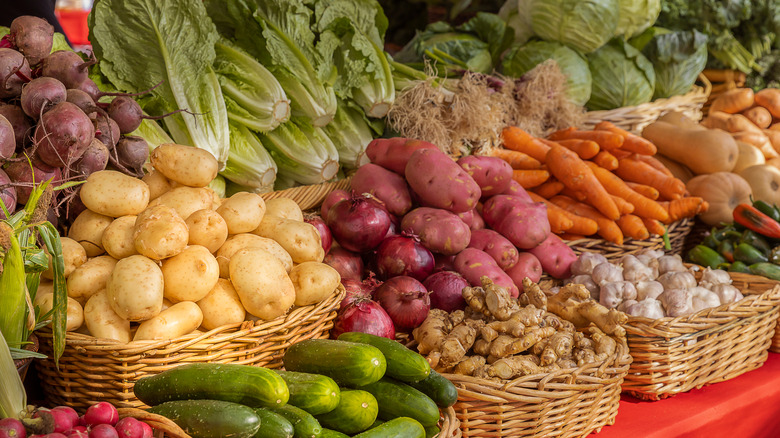Here's How Padma Lakshmi Taught Her Daughter About Seasonal Eating
Padma Lakshmi's new book Tomatoes for Neela will be published by Penguin Random House on August 31. And the celebrity and "Top Chef" host is discussing the inspiration behind it in a new interview with Today (seen on Twitter). As she says, the book came out of a conversation about pomegranates that she had with her daughter, Krishna, after the young girl asked for pomegranates one summer. However, as Lakshmi explained to her, it's an autumnal fruit and suggested that they should instead enjoy the summer-ripened tomatoes, hence the title of the book.
"I realized this child doesn't live near a farm, or an orchard and has no idea where anything grows. Because if you're lucky enough to go to a good grocery store, everything is available all the time," she said in the Today interview. "It's to tell children when our fruits and vegetables grow and in what season near us because teaching a child to eat seasonally is also teaching them about the environment. It's teaching them about nutrition because not only are fruits and vegetables really tasty when they're in season. They're also better for you."
Lakshmi carried the sentiment over into her announcement on Instagram in which she further expressed the purpose of the book is getting families to grow closer by cooking together and to teach children where food comes from. In the post, she also announces virtual book tour dates in conversation with fellow celebrity chef J. Kenji López-Alt.
The importance of seasonal eating
At first brush, seasonal eating may sound like yet another wellness trend. After all, while humanity did once eat fruits and vegetables in a seasonal manner, it was because of necessity, not choice. Today, as Lakshmi noted in her interview with Today, we can go to Whole Foods year-round and get anything we please, whether it's traditionally in season or not.
However, Lifehacker does impress upon the benefits that come with curating your diet according to the season and to what is available locally. First of all, the food is cheaper because the plants are literally growing on trees or sprouting from the ground. It is cheaper to buy apples in the fall because there happens to be more of them. Moreover, their freshness means they both taste better and provide you with better nutrition.
And of course, a lot of that has to do with the helpful work of farmers, who Lakshmi also touched on in her book with reference material at the end. "It's so easy to forget who is doing that work," she says in an interview with Associated Press. "We often don't consider the many hands that have an impact on our diets, on our daily lives. And what the pandemic has shown us is how valuable everyone in the food chain is and how they should be valued."

